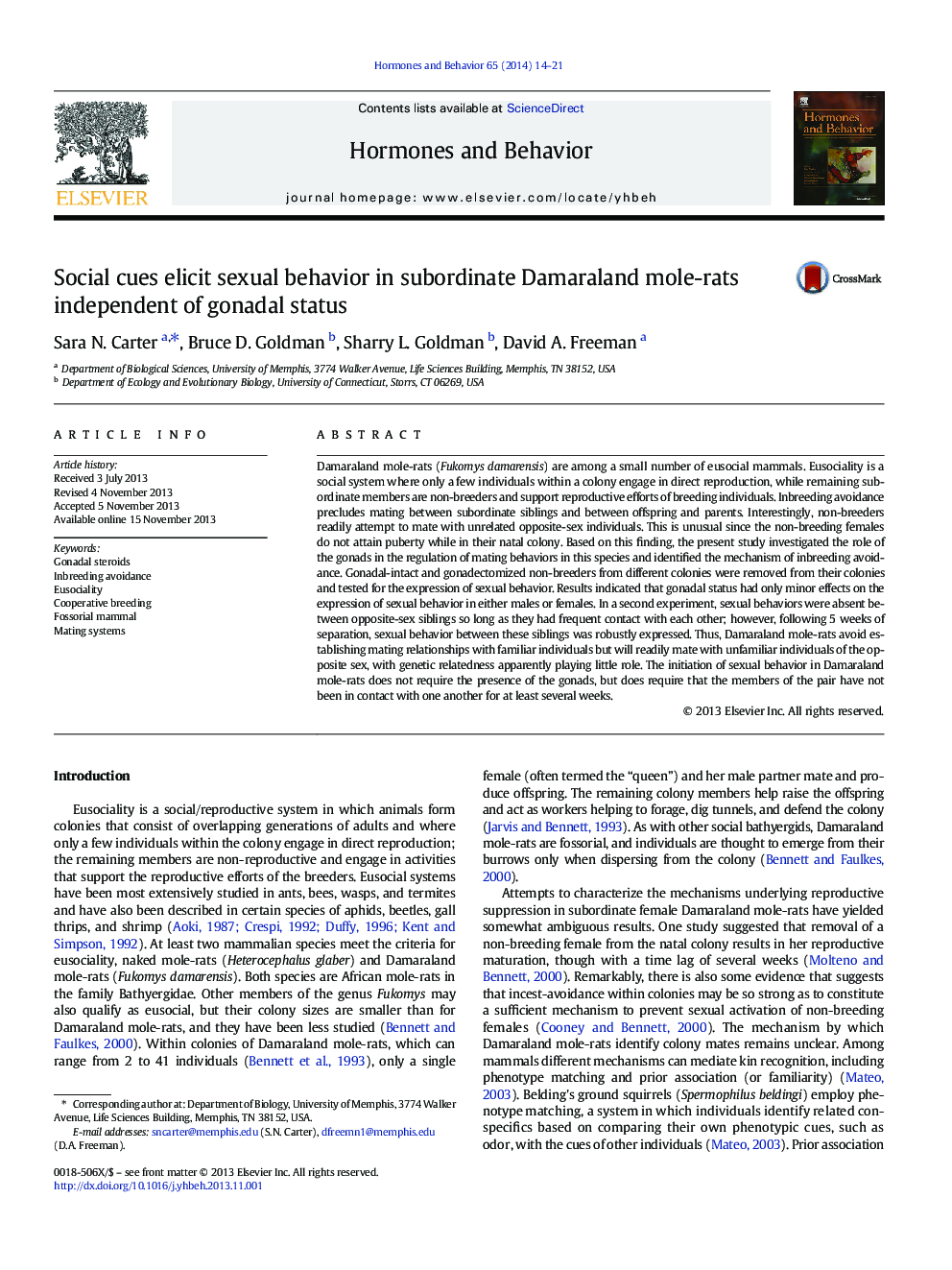| کد مقاله | کد نشریه | سال انتشار | مقاله انگلیسی | نسخه تمام متن |
|---|---|---|---|---|
| 322728 | 540224 | 2014 | 8 صفحه PDF | دانلود رایگان |
• Social cues from unfamiliar conspecifics elicit mating behavior in non-breeders.
• The expression of sexual behaviors does not depend on gonadal steroids.
• Inbreeding-avoidance depends on familiarity, rather than genetic relatedness.
Damaraland mole-rats (Fukomys damarensis) are among a small number of eusocial mammals. Eusociality is a social system where only a few individuals within a colony engage in direct reproduction, while remaining subordinate members are non-breeders and support reproductive efforts of breeding individuals. Inbreeding avoidance precludes mating between subordinate siblings and between offspring and parents. Interestingly, non-breeders readily attempt to mate with unrelated opposite-sex individuals. This is unusual since the non-breeding females do not attain puberty while in their natal colony. Based on this finding, the present study investigated the role of the gonads in the regulation of mating behaviors in this species and identified the mechanism of inbreeding avoidance. Gonadal-intact and gonadectomized non-breeders from different colonies were removed from their colonies and tested for the expression of sexual behavior. Results indicated that gonadal status had only minor effects on the expression of sexual behavior in either males or females. In a second experiment, sexual behaviors were absent between opposite-sex siblings so long as they had frequent contact with each other; however, following 5 weeks of separation, sexual behavior between these siblings was robustly expressed. Thus, Damaraland mole-rats avoid establishing mating relationships with familiar individuals but will readily mate with unfamiliar individuals of the opposite sex, with genetic relatedness apparently playing little role. The initiation of sexual behavior in Damaraland mole-rats does not require the presence of the gonads, but does require that the members of the pair have not been in contact with one another for at least several weeks.
Journal: Hormones and Behavior - Volume 65, Issue 1, January 2014, Pages 14–21
